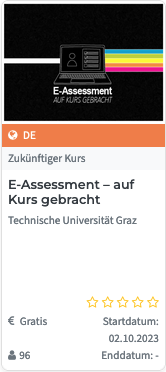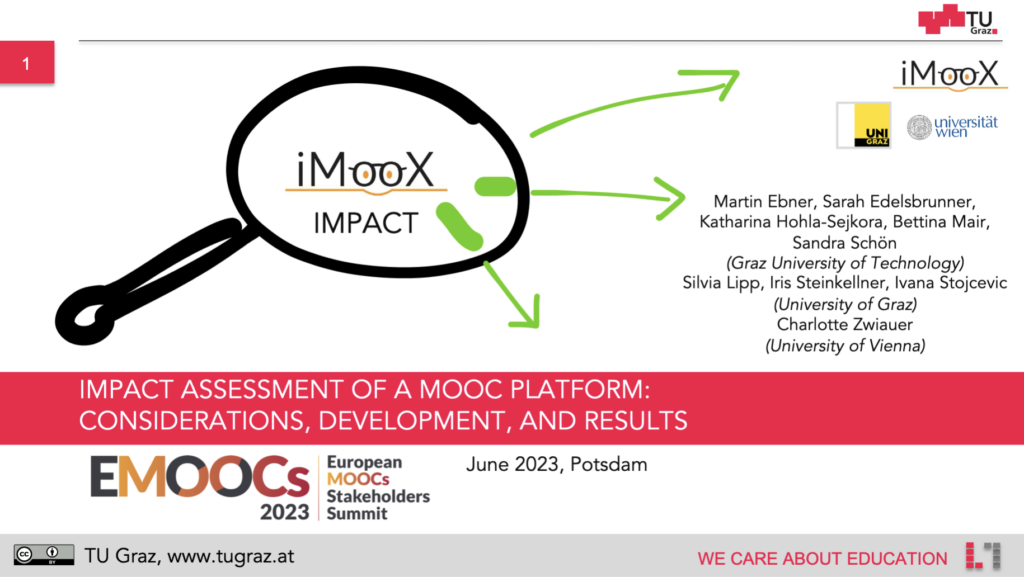Our contribution on “Impact Assessment of a MOOC Platform Considerations, Development, and Results” was published at EMOOCs 2023 conference.
Abstract:
In 2020, the project “iMooX-The MOOC Platform as a Service for all Austrian Universities” was launched. It is co-financed by the Austrian Ministry of Education, Science and Research. After half of the funding period, the project management wants to assess and share results and outcomes but also address (potential) additional “impacts” of the MOOC platform. Building upon work on OER impact assessment, this contribution describes in detail how the specific iMooX.at approach of impact measurement was developed. Literature review, stakeholder analysis, and problem-based interviews were the base for developing a questionnaire addressing the defined key stakeholder “MOOC creators”. The article also presents the survey results in English for the first time but focuses more on the development, strengths, and weaknesses of the selected methods. The article is seen as a contribution to the further development of impact assessment for MOOC platforms.
Reference: Ebner, M., Edelsbrunner, S., Hohla-Sejkora, K., Mair, B., Schön. S., Lipp, S., Steinkellner, I., Stojcevic, I. & Zwiauer, C. (2023) Impact Assessment of a MOOC Platform Considerations, Development, and Results. EMOOCs 2023, 171-186 [.pdf]


